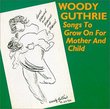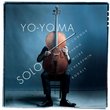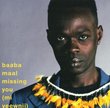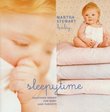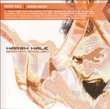| All Artists: Bernard Herrmann Title: The Day The Earth Stood Still: 20th Century Fox Film Scores - The Classic Series Members Wishing: 3 Total Copies: 0 Label: Arista Original Release Date: 9/28/1951 Re-Release Date: 11/9/1993 Album Type: Soundtrack Genres: Pop, Soundtracks Style: Number of Discs: 1 SwapaCD Credits: 1 UPCs: 078221101028, 078221101042 |
Search - Bernard Herrmann :: The Day The Earth Stood Still: 20th Century Fox Film Scores - The Classic Series
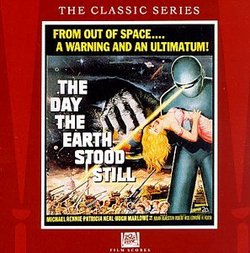 | Bernard Herrmann The Day The Earth Stood Still: 20th Century Fox Film Scores - The Classic Series Genres: Pop, Soundtracks
This is the movie that gave us the phrase "Klaatu barada nikto!" As befits the film that kicked off the Atomic Age's obsession with flying saucers and giant robots, Bernard Herrmann's score is the last word in 1950s sci-fi... more » |
Larger Image |
CD DetailsSynopsis
Amazon.com This is the movie that gave us the phrase "Klaatu barada nikto!" As befits the film that kicked off the Atomic Age's obsession with flying saucers and giant robots, Bernard Herrmann's score is the last word in 1950s sci-fi. Although many of its elements have become clichés over the years, the original has lost none of its power. Thanks to the many eerie, theremin-drenched passages, it's almost impossible to hear that instrument without thinking about guys in space suits. Other great moments: tinkling space pianos, ominous robot monster chords, and weird, plangent orchestrations. One of Herrmann's most visionary and influential scores. --Heidi MacDonald Similarly Requested CDs
|
CD ReviewsIf you loved this film, you need this disc. pro_crustes | Atlantic Coast, USA | 07/23/2001 (4 out of 5 stars) "Who didn't love "The Day the Earth Stood Still"? It's old, yet it can still stir you. Part of the reason has to be the mysterious, haunting score by Bernard Herrmann, who did similar work for Alfred Hitchcock. By mixing uplifting, inspirational sequences of notes with ominous bass lines he helped reinforce the movie's message about the dangerous path into the future. It's as though Herrmann is saying, "There's something worth seeing at the end of the trip, but you better watch your step along the way."Today, it may seem a bit cliche'd, but Herrman fearlessly embraced the Theremin's musical potential, producing the weird, liquid, electronic glissandos that have become science fiction cinema's signature music, ever since. Others may have done it first, but he was the first to do it right. And, as with many soundtracks, you get to hear all of his work without voice-over or sound effects, which, in this case, is a big reason to buy the CD. There's more in there than you'll ever hear by watching the movie.A bit of tape hiss stops this from being a 5 score, but the music is fine, nonetheless." This Soundtrack Will Blow You Away! David Von Pein | Mooresville, Indiana; USA | 11/28/2001 (5 out of 5 stars) ""The Day The Earth Stood Still" from 1951 has got to be one of the greatest science-fiction movies of all-time. And if one didn't know who provided the incredible music score for this picture, I'll bet they could guess correctly with one shot at it. Yep -- it was the amazing Bernard Herrmann! Mr. Herrmann's movie scores are legendary; and this one is one of my favorites, and arguably his best. From those first few notes at the beginning of the film, the tone is set for a very creepy journey. Every track on this album has that Herrmann "stamp" on it. Just perfect for this motion picture. This music will raise the hair on your arms each time you give it a listen. Classic stuff ... with a Capital "C"!" "Klaatu Barada Nikto" Kathy Fennessy | 03/22/2001 (5 out of 5 stars) "Eerie, groundbreaking soundtrack to the science fiction classic by Robert Wise (The Haunting, The Sound of Music). Composer Bernard "Psycho" Herrmann incorporated everything from a collection of Theremins to a hot water bottle (!) into the making of the recording. Theremin fans may also want to investigate the documentary, Theremin: An Electronic Odyssey, about the mysterious Russian inventor of this otherworldly string instrument, Leon Theremin, and the many uses to which it's been put over the years (soundtracks, classical recordings and pop numbers from The Beach Boys and The Pixies). It features clips from The Day the Earth Stood Still, Spellbound and The Lost Weekend. Herrmann fans would also probably enjoy his similarly excellent work for Cape Fear (which was reworked for Martin Scorsese's remake) and Taxi Driver (his last; fittingly for Scorsese again). The CD booklet features complete liner notes about the film, the soundtrack, and the origins of the immortal sci-fi phrase, "Klaatu barada nikto" (spoken by Michael Rennie as the mysterious alien, Klaatu)."
|

 Track Listings (18) - Disc #1
Track Listings (18) - Disc #1